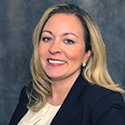Middle-Market Public Policy Roundup
SEC Chairman Jay Clayton spoke on middle market topics at the last IAC meeting, the FSOC published its annual report and Congress tries to avoid a shutdown.

In the last roundup of 2018, SEC Chairman Jay Clayton spoke with members of the Investor Advisory Committee late last week on a variety of issues affecting the middle market, including how to expand the number of accredited investors–especially for professionals in the retail sector. On the heels of the Federal Reserve’s interest rate hike Wednesday, the U.S. Treasury’s Financial Stability Oversight Council published its annual report, which recommends the SEC monitor data reporting rules to allow FSOC to assess whether private equity funds may pose financial stability risk. Lastly, the U.S. House of Representatives passed a spending package Thursday that includes funding for President Trump’s border wall funding to avoid a government shutdown. The funding legislation now moves on to the Senate, which is expected to vote Friday or face a shutdown at midnight.
SEC Chairman Clayton Talks Accredited Investors, Private Capital and ESG with the SEC’s Investor Advisory Committee
During the Securities and Exchange Commission’s most recent meeting on Dec. 13, Chairman Jay Clayton provided remarks on a variety of issues that are important to the middle market.
When it came to expanding the pool of accredited investors, Clayton described the current system as an “income and a wealth-based test” with a need for improvement. “If you don’t meet the thresholds, you can’t play, if you meet the threshold, you can lose all your money,” the chairman said.
While rejecting reports he would unilaterally reduce the threshold, Clayton said he wanted to see more retail professionals participate in a way they would not be taking on such a “stark” risk. “It’s a difficult nut to crack, but it’s one we’ve got to explore,” he said.
One way to do that, IAC members suggested, is to develop a third-party verification system for accredited investor determinations with definitions and approaches that would make the accreditation process less binary. Clayton called this suggestion “very good” for small business capital formation and noted the SEC would continue to look further into it.
Discussion then briefly turned to the positive impact private capital had in the post-2008 economic recovery. “The nimble nature of our private capital markets is universally accepted by central bankers as one of the reasons why, coming out of 2009, the U.S. economy performed better than comparable economies,” Clayton said.
Lengthy discussion on environmental, social, and governance criteria concluded the meeting. Clayton said the SEC is seeing more issuers in the marketplace disclose ESG information and more requests for ESG information by investors. Reporting standards are provided by third-parties but Clayton said issuers shouldn’t be required to follow them in order to comply with SEC rules.
Clayton made the statement, “Each company, and each sector, has its own circumstances, which may or may not fit within a standard framework … From my perspective, what is important … is that investors have full and fair disclosure of the material facts about the investment strategy their fiduciary is following so that they are in a position to make an informed choice about that investment advisor.”
Given the SEC’s focus on these issues, it is critical that ACG remains actively engaged to ensure the voice of the middle market is a strong part of the ongoing policy dialogue.
FSOC Releases 2018 Annual Report
Amidst a rate hike by the Federal Reserve, the Financial Stability Oversight Council released its annual report this week.
The report, which is required by the Dodd-Frank Act, includes activities of the FSOC, significant financial market and regulatory developments, potential emerging threats to the financial stability of the United States, and a series of recommendations.
Although the report includes a section entitled, “Asset Management Products and Activities,” which focuses on private funds and the private equity industry, the report does not specifically call for increased private equity regulation nor does it make much mention of private funds. However, the report notes the FSOC wants to ensure there is adequate information to assess risks in the asset management industry. To do this, the report recommends that the SEC monitor data reporting rules to allow FSOC to assess whether private equity funds may pose financial stability risk.
The Council, created by the Dodd-Frank Act, consists of ten voting members and five non-voting members consisting of federal financial regulators, state regulators, and an insurance expert appointed by the President.
House Votes to Approve FY19 Spending Package
At the end of the day on Thursday, the U.S. House of Representatives approved along party lines its FY19 spending package in a vote of 217-185. It included $5.7 billion in border wall funding, a sticking point for President Trump’s willingness to sign the bill, as well as $8 billion in disaster relief funding.
The Senate is scheduled to convene on Friday, but it is not clear what Senate Democrats will ultimately decide to do given the changing dynamics. Funding legislation is needed by midnight Friday to avoid a lapse and partial shutdown for approximately 25% of government operations.
Interested in public policy issues that affect the middle market? Email Maria Wolvin, senior counsel and vice president of public policy, at mwolvin@acg.org to sign up for ACG’s Public Policy Interest Group and be the first to hear about relevant congressional, regulatory and policy-related developments.

Maria Wolvin is ACG Global’s vice president and senior counsel, public policy.

Ben Marsico is ACG Global’s manager of legislative and regulatory affairs.


